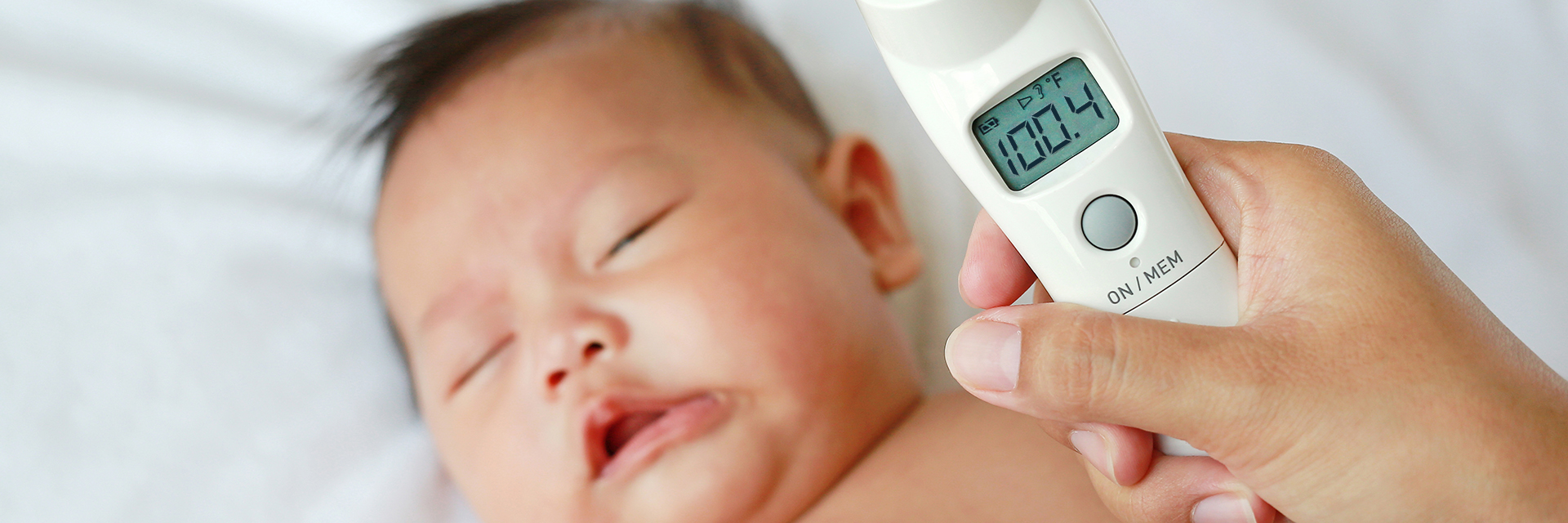Contact your baby’s healthcare provider about a fever using these guidelines:
- Under 3 months of age: Any temperature of 100.4º F (38.0°C) or above taken rectally
- 3 to 6 months: Temperature of up to 102.2º F (39º C) and seems sick or a temp higher than 102.2ºF. (The doctor may or may not want you to bring your baby in to be seen with a 102.2º F fever. It often depends on the other symptoms.)
- 6 to 24 months: Temperature higher than 102º F (38.8º C) for longer than a day with no other symptoms. If there are symptoms with the fever, contact the healthcare provider sooner.
A simple (or low-grade) fever is not known to endanger a healthy child and may actually help to fight infection, according to the American Academy of Pediatrics. Many parents believe that the goal in treating a fever is to lower the temperature to normal, but the real aim is to make your child comfortable.
Remember, however, that you are the best judge of when your baby is ill. If you’re concerned about her health for any reason, call your doctor—even if her temperature is normal.
Can a Fever Help Prevent Allergies?
Research suggests that fevers in the first year of life offer some protection against allergies to dust mites, ragweed, cats and other common allergens. (Exposure to cats and other pets in the first year of life also seems to reduce this risk.)
While you certainly don’t want to expose your baby to germs in order to force a protection against allergies, don’t worry too much about trying to keep his world germ-free. A little exposure to the world, germs and all, seems to play a role in developing a healthy immune system.
See also ...
This message is not intended to provide individual medical advice. Always seek the advice of a physician or qualified healthcare provider for any questions you have about your health or medical condition, your breastfeeding issues and your infant's health. Never disregard, avoid or delay contacting a doctor or other qualified professional because of something you have read in our emails, webpages or other electronic communications.
Powered by UbiCare

